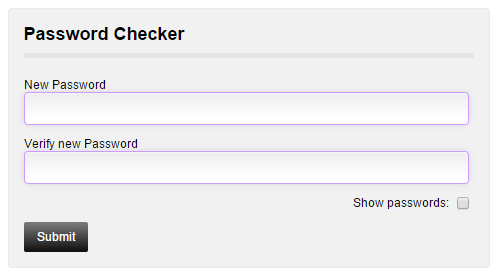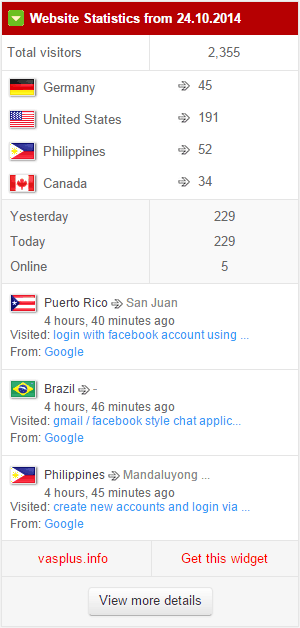Many websites that require login credentials enforce a security technique often referred to as password complexity requirements. These requirements ensure that user passwords are sufficiently strong and cannot be easily broken.
The passwords are always the most commonly used authentication mechanism. Even as many websites move to multi-step authentication, passwords mode of authentication still pay a key role in securing an account.
A strong password is critical to account security and this tutorial teaches you how to design a system that gauges password strength using jQuery.
Now, what constitutes a strong password?
Well, that depends on who you ask. However, traditional factors that contribute to a password's strength include the length of the password, the complexity of the password, and unpredictability of the password.
To ensure password strength, many sites require user passwords to be alphanumeric in addition to being a certain length.
In this tutorial, we will construct a form that gives the user live feedback as to whether their password has sufficiently met the complexity requirements we have established.
The user also will be able to click on a check box to see their real password to avoid mistake when typing their desired passwords.
The purpose of this tutorial is to show how a simple script can be written using jQuery to enforce password complexity requirements. You will be able to add additional requirements to the script if needed.
There is a README.txt file in the downloaded folder that gives you information on how to add additional fields or requirements if needed.

The passwords are always the most commonly used authentication mechanism. Even as many websites move to multi-step authentication, passwords mode of authentication still pay a key role in securing an account.
A strong password is critical to account security and this tutorial teaches you how to design a system that gauges password strength using jQuery.
Now, what constitutes a strong password?
Well, that depends on who you ask. However, traditional factors that contribute to a password's strength include the length of the password, the complexity of the password, and unpredictability of the password.
To ensure password strength, many sites require user passwords to be alphanumeric in addition to being a certain length.
In this tutorial, we will construct a form that gives the user live feedback as to whether their password has sufficiently met the complexity requirements we have established.
The user also will be able to click on a check box to see their real password to avoid mistake when typing their desired passwords.
The purpose of this tutorial is to show how a simple script can be written using jQuery to enforce password complexity requirements. You will be able to add additional requirements to the script if needed.
There is a README.txt file in the downloaded folder that gives you information on how to add additional fields or requirements if needed.

